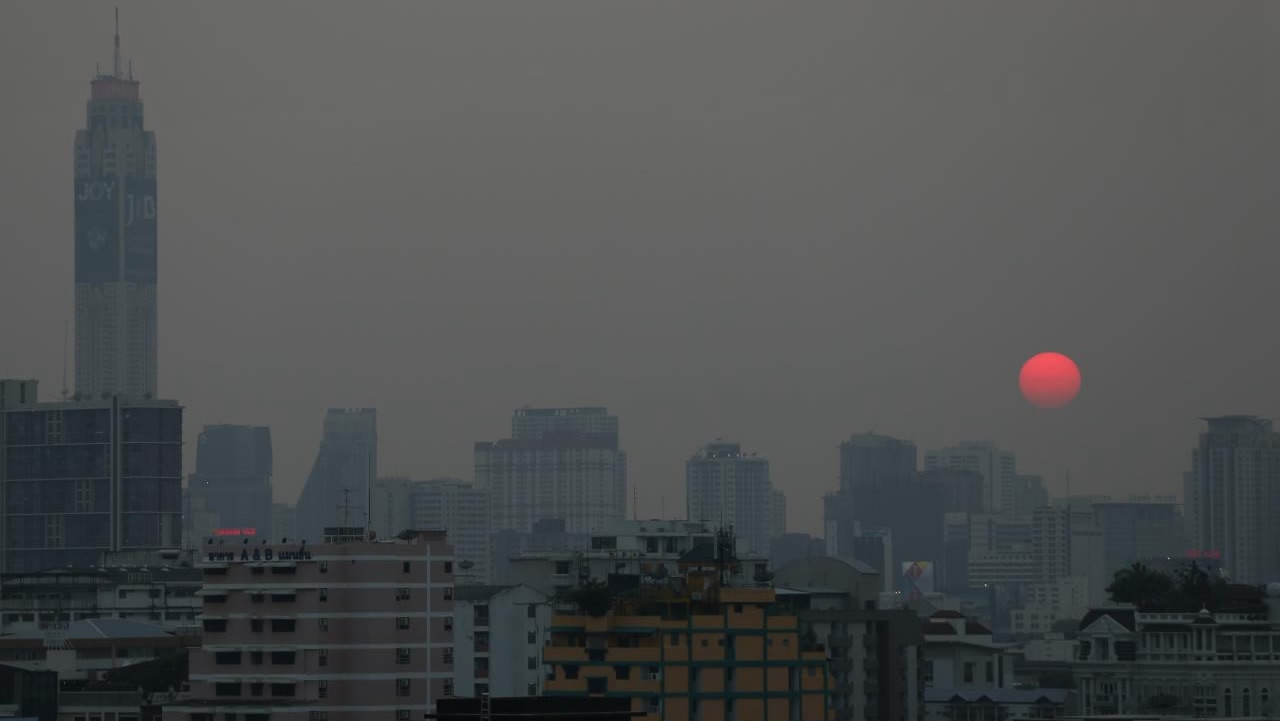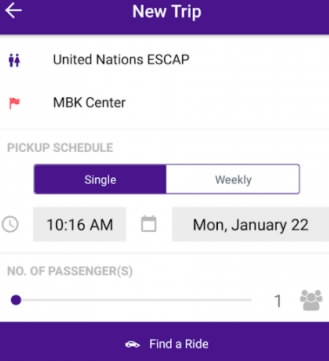
Tech & Sci
12:24, 26-Mar-2018
UN's community-based Rideshare app to combat air pollution
Alok Gupta

The United Nations (UN) is gearing up to launch vehicle pooling app “Rideshare” to combat rising air pollution in cities.
The Rideshare application currently undergoing extensive testing is likely to be available in App stores in April. Dinh-Huy Banh, head of Information and Communications Technology ICT told CGTN that the app helps not only in carpooling but also provides a similar feature for a range of other vehicles.
“Passengers can share cars, bikes, cycles, and trucks, depending on their use. There is a feature to share trucks for transportation of goods,” he said. Unlike other carpooling apps, Rideshare involves communities for creating a group of passengers known to each other, either at the workplace, residential blocks or related communities.
Officials claimed that the app is an effort to create a trusted network of vehicle owners and passengers to reduce the number of cars and other vehicle emissions.
The app creates a community network by adding vehicle owners and their license plates, specifies the number of passengers a vehicle can carry, destinations and routes they are taking, including stop points. Passengers can also select the time they want to travel.
The system creates a notice for pick-up and drop-offs and sends an alert to both passengers and vehicle owners. The app made its debut at the Clean Air Asia Week held at Bangkok from March 19 to 23.
Asia's megacities are facing the worst air pollution, and vehicular emissions are making it worse
Researchers warn that rapid urbanization in the ASEAN region could lead to dangerous levels of air pollution, similar to those seen in several cities in India and China with average annual PM2.5 concentrations exceeding 100 micrograms.

A screenshot of UN's Rideshare app. /UN Photo
A screenshot of UN's Rideshare app. /UN Photo
Recent data released by United Nations Environment Programme (UNEP), revealed air pollution in the region would be further exacerbated by the 120 million people in Asean cities who don't have access to electricity and the 280 million who lack clean cooking fuels. The practice of waste burning will further exacerbate the pollution level.
World Health Organization’s report in 2016 revealed, air pollution grew more than five percent between 2008 and 2013 in more than two-thirds of South-east Asian cities.
Air pollution consists of fine particulate matter (PM) 2.5 that enters the bloodstream and can cause lethal diseases. Vehicular pollution also releases a vast amount of toxic fumes including nitrogen dioxide, sulfur dioxide and carbon monoxide causing further damage to health.
Worst enough about 90 percent of pollution-related deaths are reported from low-and-middle-income countries, a majority of them in South-east Asia and the Pacific. Air pollution experts maintained more than 70 to 80 percent of air pollution in megacities in developing nations is attributed to vehicular emissions.
Lee Hwayun, a project associate at the UN Office of Information and Communication Technology, said the app is still in its testing phase and is being used by UN staff. Currently the app is being fine-tuned for use by other communities and international organizations.
“It is (the app) aligned with climate change and sustainable development goals in reducing emissions and resource use. It is also good for community bonding as it offers people an opportunity to meet others in the UN and the community,” he said.

SITEMAP
Copyright © 2018 CGTN. Beijing ICP prepared NO.16065310-3
Copyright © 2018 CGTN. Beijing ICP prepared NO.16065310-3